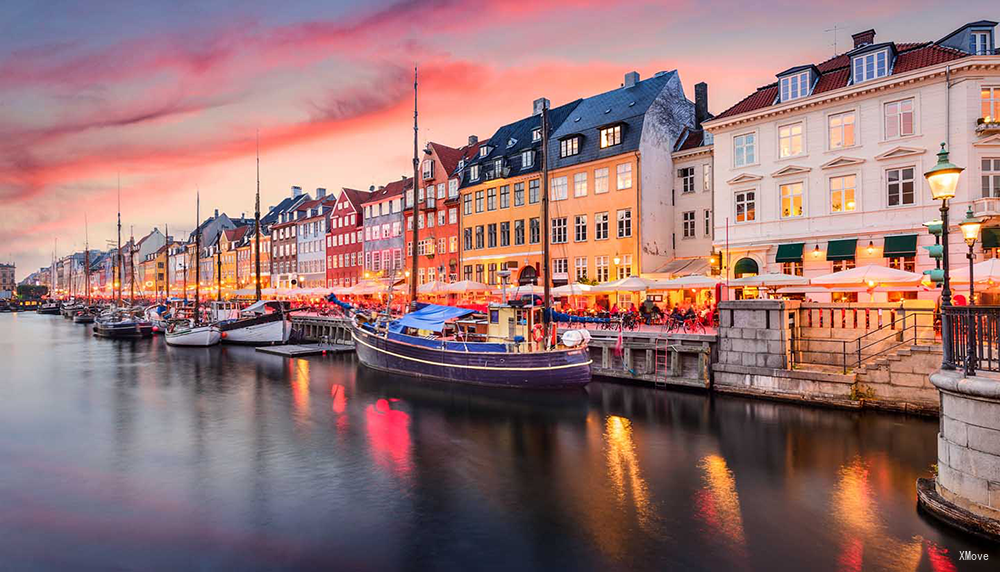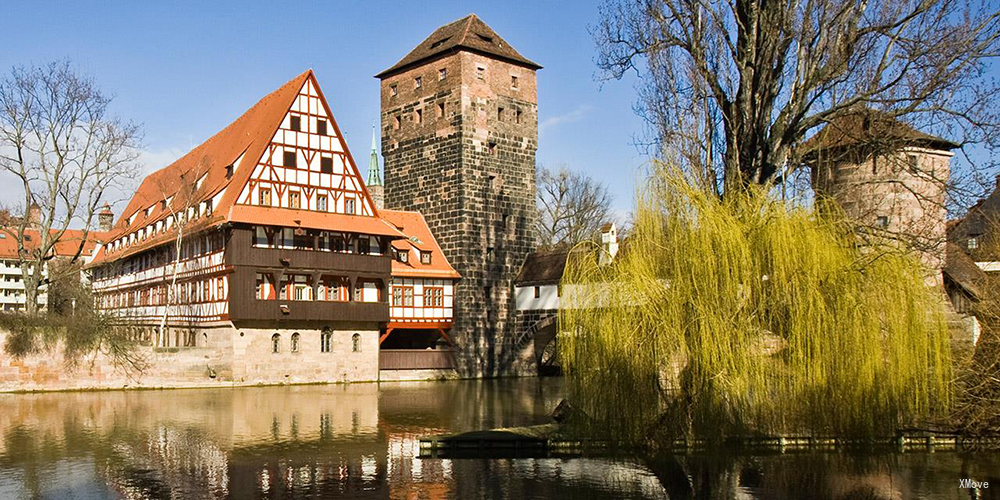Copenhagen to N Ue Rnberg: Trains, Buses, Fares, Today's Connections, Routes, Duration, Types of Trains, Station Guides, Tips, Journey
Denmark Train Tickets
Scan QR code, download G2Rail App to see Copenhagen's more live update, station guide, plan and photos



Train schedule Copenhagen(Koebenhavn) to N Ue Rnberg(Nürnberg)
Popular train routes departing from Copenhagen(Koebenhavn)
* Wesel
* Rendsburg
* Duesseldorf Hbf(Düsseldorf Hbf)
* Bremen Central(Bremen Hbf)
* Höganäs
* Odense St.
* Husum(S) Station(Husum Station)
Popular train routes arriving in Copenhagen(Koebenhavn)
* Vallendar
* Moenchengladbach Hbf(Mönchengladbach Hbf)
* Chur
* Aalborg St
* Strasbourg
* Gdynia
* Hamburg Central(Hamburg Hbf)
Popular train routes departing from N Ue Rnberg(Nürnberg)
* Hamburg Central(Hamburg Hbf)
* Rothenbuerg(Rothenbürg)
* Muenchen Hbf(München Hbf)
* Praha Hl.N. (Autobusová St. Wilsonova)
* Köbenhavn H
* Zürich Hb
* Vaihingen(Enz)
Popular train routes arriving in N Ue Rnberg(Nürnberg)
* Zwickau(Sachs) Central(Zwickau(Sachs)Hbf)
* Goerlitz(Görlitz)
* Paderborn Central(Paderborn Hbf)
* Nijmegen
* Garmisch Partenkirchen
* Moenchengladbach Hbf(Mönchengladbach Hbf)
* Bolzano Novarese

Copenhagen (Danish: København [kʰøpm̩ˈhaʊ̯ˀn] ) is the capital and most populous city of Denmark. As of July 2018, the city has a population of 777,218 (616,098 in Copenhagen Municipality, 103,914 in Frederiksberg Municipality, 43,005 in Tårnby Municipality, and 14,201 in Dragør Municipality). It forms the core of the wider urban area of Copenhagen (population 1,320,629) and the Copenhagen metropolitan area (population 2,057,737). Copenhagen is situated on the eastern coast of the island of Zealand; another small portion of the city is located on Amager, and it is separated from Malmö, Sweden, by the strait of Øresund. The Øresund Bridge connects the two cities by rail and road. Originally a Viking fishing village established in the 10th century in the vicinity of what is now Gammel Strand, Copenhagen became the capital of Denmark in the early 15th century. Beginning in the 17th century it consolidated its position as a regional centre of power with its institutions, defences and armed forces. After a plague outbreak and fire in the 18th century, the city underwent a period of redevelopment. This included construction of the prestigious district of Frederiksstaden and founding of such cultural institutions as the Royal Theatre and the Royal Academy of Fine Arts. After further disasters in the early 19th century when Horatio Nelson attacked the Dano-Norwegian fleet and bombarded the city, rebuilding during the Danish Golden Age brought a Neoclassical look to Copenhagen's architecture. Later, following the Second World War, the Finger Plan fostered the development of housing and businesses along the five urban railway routes stretching out from the city centre. Since the turn of the 21st century, Copenhagen has seen strong urban and cultural development, facilitated by investment in its institutions and infrastructure. The city is the cultural, economic and governmental centre of Denmark; it is one of the major financial centres of Northern Europe with the Copenhagen Stock Exchange. Copenhagen's economy has seen rapid developments in the service sector, especially through initiatives in information technology, pharmaceuticals and clean technology. Since the completion of the Øresund Bridge, Copenhagen has become increasingly integrated with the Swedish province of Scania and its largest city, Malmö, forming the Øresund Region. With a number of bridges connecting the various districts, the cityscape is characterised by parks, promenades and waterfronts. Copenhagen's landmarks such as Tivoli Gardens, The Little Mermaid statue, the Amalienborg and Christiansborg palaces, Rosenborg Castle Gardens, Frederik's Church, and many museums, restaurants and nightclubs are significant tourist attractions. The largest lake of Denmark, Arresø, lies around 27 miles (43 kilometers) northwest of the City Hall Square. Copenhagen is home to the University of Copenhagen, the Technical University of Denmark, Copenhagen Business School and the IT University of Copenhagen. The University of Copenhagen, founded in 1479, is the oldest university in Denmark. Copenhagen is home to the FC København and Brøndby football clubs. The annual Copenhagen Marathon was established in 1980. Copenhagen is one of the most bicycle-friendly cities in the world. The Copenhagen Metro launched in 2002 serves central Copenhagen. The Copenhagen Metro is scheduled to expand radically with the opening of the City-ring line during fall 2019, the new line will connect all inner boroughs of the city by metro, including The Central Station, and will open up 17 new stations for Copenhageners. The new metro line is a part of the city's strategy to transform mobility towards sustainable modes of transport such as public transport and cycling as opposed to automobility. Additionally the Copenhagen S-train, the Lokaltog (private railway) and the Coast Line network serves and connects central Copenhagen to outlying boroughs. The Copenhagen-Ringsted Line will relieve traffic congestion in the corridor between Roskilde and Copenhagen. Serving roughly two million passengers a month, Copenhagen Airport, Kastrup, is the busiest airport in the Nordic countries.
Copenhagen - Guide, Attractions, Tours, Sightseeings | Train from/to Copenhagen | Popular RoutesNuremberg ( NEWR-əm-burg; German: Nürnberg [ˈnʏʁnbɛʁk] ; East Franconian: Närrnberch or Nämberch, locally Närmberch) is the second-largest city of the German federal state of Bavaria after its capital Munich, and its 511,628 (2016) inhabitants make it the 14th largest city in Germany. On the Pegnitz River (from its confluence with the Rednitz in Fürth onwards: Regnitz, a tributary of the River Main) and the Rhine–Main–Danube Canal, it lies in the Bavarian administrative region of Middle Franconia, and is the largest city and the unofficial capital of Franconia. Nuremberg forms a continuous conurbation with the neighbouring cities of Fürth, Erlangen and Schwabach with a total population of 787,976 (2016), while the larger Nuremberg Metropolitan Region has approximately 3.5 million inhabitants. The city lies about 170 kilometres (110 mi) north of Munich. It is the largest city in the East Franconian dialect area (colloquially: "Franconian"; German: Fränkisch). There are many institutions of higher education in the city, most notably the University of Erlangen-Nuremberg (Friedrich-Alexander-Universität Erlangen-Nürnberg), with 39,780 students (2017) Bavaria's third and Germany's 11th largest university with campuses in Erlangen and Nuremberg and a university hospital in Erlangen (Universitätsklinikum Erlangen); Technische Hochschule Nürnberg Georg Simon Ohm; and Hochschule für Musik Nürnberg. Nuremberg Airport (Flughafen Nürnberg “Albrecht Dürer“) is the second-busiest airport of Bavaria after Munich Airport, and the tenth-busiest airport of Germany. Staatstheater Nürnberg is one of the five Bavarian state theatres, showing operas, operettas, musicals, and ballets (main venue: Nuremberg Opera House), plays (main venue: Schauspielhaus Nürnberg), as well as concerts (main venue: Meistersingerhalle). Its orchestra, Staatsphilharmonie Nürnberg, is Bavaria's second-largest opera orchestra after the Bavarian State Opera's Bavarian State Orchestra in Munich. Nuremberg is the birthplace of Albrecht Dürer and Johann Pachelbel. Nuremberg was the site of major Nazi rallies, and it provided the site for the Nuremberg trials, which held to account many major Nazi officials.
Nuernberg - Guide, Attractions, Tours, Sightseeings | Train from/to Nuernberg | Popular Routes
Denmark Train Tickets
Scan QR code, download G2Rail App to see Copenhagen's more live update, station guide, plan and photos



Hot Journeys
* Nice -> Paris
* Basel(Basel) -> Paris
* Barcelona -> Valencia
* London(London) -> Brussels(Bruxelles)
* Budapest(Budapest) -> Vienna(Wien)
* Dusseldorf(Düsseldorf) -> Frankfurt
* Arth -> Milan
* Munich(Müchen) -> Berlin(Berlin)
* Brig -> Andermatt
* Frankfurt -> Cologne(Köln)
* Seoul(서울) -> Gwangju Metropolitan City(광주광역시)
* Stuttgart -> Frankfurt
* Madrid(Madrid) -> Barcelona
* Paris -> Marseilles(Marseille)
* Milan -> Lucerne(Luzern)
* Kyoto(京都) -> Tokyo(東京)
* Florence -> Prato(Prato)
* Venice(Venezia) -> Milan
* Brussels(Bruxelles) -> Paris
* Berlin(Berlin) -> Munich(Müchen)
* Berlin(Berlin) -> Munich(Müchen)
* Bratislava(Bratislava) -> Warsaw(Warszawa)
* Naples -> Florence
* Paris -> Avignon
* Dusseldorf(Düsseldorf) -> Munich(Müchen)
* Prato(Prato) -> Florence
* Barcelona -> Madrid(Madrid)

